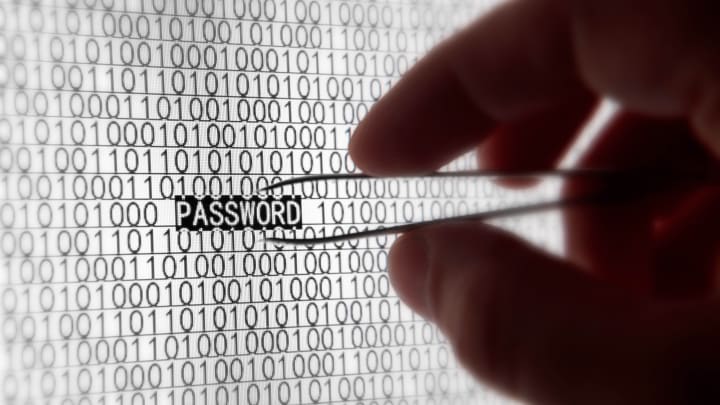LOCK IT UP:CELEBRATING WORLD PASSWORD DAY
STRONG PASSWORDS & GOOD VIBES !

World Password Day is always observed on the first Thursday in May. This day was established to increase public awareness of the value of strong passwords and the dangers associated with using weak or obvious passwords. Having strong passwords is more crucial than ever because of our escalating reliance on digital devices and online services. We use passwords to prevent unauthorised access to our sensitive and private information. This includes information about our social media accounts, emails, and other things. Nevertheless, despite being aware of the significance of using strong passwords, many people continue to use weak passwords that are simple to guess or crack.
Around 66% of Americans use the same password for multiple accounts, according to a survey by the National Cyber Security Alliance. It follows that if a hacker manages to enter one account, they might be able to do the same with all other accounts that use the same password. In addition, many users utilize well-known and simple passwords like "password" or "123456". Using weak passwords exposes you to cyber attacks like phishing and hacking, putting your personal information at risk. Your credentials may be stolen by cybercriminals using a variety of methods, including brute force attacks, dictionary attacks, and social engineering.

A brute force assault is a technique where a hacker systematically attempts all conceivable combinations of letters, numbers, and symbols to discover your password. Even though it may take a while, if the password is weak, it might still work. In contrast, a dictionary attack tries to guess your password by using a pre-built list of popular passwords. Hackers may use social engineering to impersonate someone else or instill a sense of urgency in order to get you to give your password. It's crucial to choose strong passwords that are challenging to decipher or guess in order to safeguard your personal information. An effective password usually consists of a combination of capital and lowercase characters, numbers, and symbols. Furthermore, you should refrain from utilising everyday language, private information like your name or birthdate, and consecutive digits like "123456" or "987654."
It might be difficult to come up with and remember secure passwords for all of your accounts, but there are a number of tools and techniques that can assist. Using a password manager, which is software that safely stores all of your passwords in an encrypted database, is one of the most efficient methods. You can access all of your passwords with only one master password if you use a password manager. Using passphrases rather than passwords is a further tactic. A passphrase is a string of unrelated phrases that is simple to remember yet challenging to decipher. In place of "password123," for instance, you could enter "coffeehorseballoon."

Additionally, it's crucial to regularly change your passwords and use different passwords for various accounts. If you use separate passwords for each account, if one of your accounts is compromised, the hackers won't be able to access the other accounts. The most recent security dangers must be understood, and it's critical to keep up with the most recent security measures. This includes setting two-factor authentication, which increases security by requiring an additional factor, such as a number delivered to your phone or email, to complete the authentication process.
The dangers of using weak or readily guessed passwords are brought up on World Password Day as a reminder of the use of strong passwords. You may safeguard your personal information and be safe online by adhering to best practises including using a password manager, utilising passphrases, changing passwords frequently, and keeping up with the most recent security measures.
ABRAR AHAMED






Comments
There are no comments for this story
Be the first to respond and start the conversation.